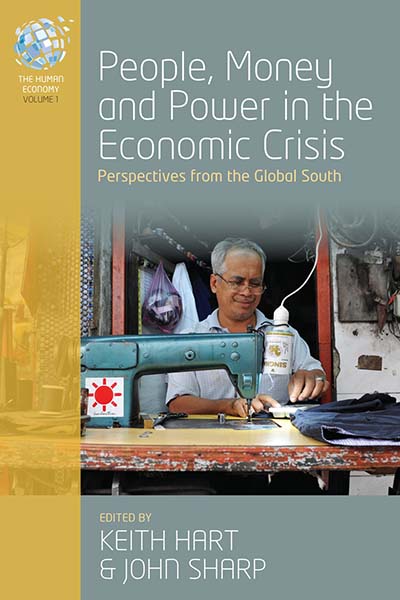“A striking element of the volume is the interdisciplinarity of its textual form. While most of the contributors are in fact sociocultural anthropologists, the appropriation of templates and literary conventions within and across the fields of history, sociology, political economy and geography reflects the seriousness of the authors’ coalition building aspirations.” · Anthropological Forum
“[This volume} represents a vital disciplinary turn away from formal institutions toward the ways that individuals, classes, races, or ethnic groups actually navigate and respond to their economic circumstances. As anthropologists, this material should be inspirational, for many reasons among which are an appreciation that informal activities are not unimportant or disorganized activities, that 'subalterns' are not passive in the face of their disadvantages, and that 'resistance' is not the only option open to them.” · Anthropology Review Database
“This volume will be a valuable contribution to economic anthropology. The empirically rigorous cases reveal just why the methods that we associate with anthropology are fundamental to our understanding of the economy… [It] urges us to rethink what ‘the crisis’ – the aftermath of the 2008 financial meltdown - really is.” · Erik Bähre, Leiden University
The Cold War was fought between “state socialism” and “the free market.” That fluctuating relationship between public power and private money continues today, unfolding in new and unforeseen ways during the economic crisis. Nine case studies -- from Southern Africa, South Asia, Brazil, and Atlantic Africa – examine economic life from the perspective of ordinary people in places that are normally marginal to global discourse, covering a range of class positions from the bottom to the top of society. The authors of these case studies examine people’s concrete economic activities and aspirations. By looking at how people insert themselves into the actual, unequal economy, they seek to reflect human unity and diversity more fully than the narrow vision of conventional economics.
Keith Hart (1943-2025) was a co-director of the Human Economy Program at the University of Pretoria and Centennial Professor of Economic Anthropology at the London School of Economics and Political Science. His recent books include The Human Economy: A Citizen’s Guide (with Jean-Louis Laville and Antonio David Cattani, 2010) and Economic Anthropology: History, Ethnography, Critique (with Chris Hann, 2011).
John Sharp is Emeritus Professor of Social Anthropology at the University of Pretoria and South Africa Director and International Director of the Human Economy Program. He taught at the Universities of Cape Town and Stellenbosch. He has published on the mission reserves of Northern Cape Province, the Bantustan of Qwaqwa, on the white Afrikaans-speaking inhabitants of Pretoria, and on the history of South African anthropology.
Area:
LC: HC59.72.E5P464 2014
BL: SPIS338.927091724
BISAC: SOC002010 SOCIAL SCIENCE/Anthropology/Cultural & Social; BUS069000 BUSINESS & ECONOMICS/Economics/General; POL023000 POLITICAL SCIENCE/Political Economy
BIC: KC Economics; JHMC Social & cultural anthropology, ethnography
Related Video
Interview of Keith Hart on 12th April 2006 at the Association of Social Anthropologists Conference at Keele University. One hour interview, filmed and interviewed by Alan Macfarlane, takes the life to 1984. The second half was recorded in Cambridge on 16 January 2009. Summaries by Sarah Harrison


